Get Septic Inspection in Denver County, CO
Septic inspection services in Denver County and nearby areas help property owners identify system issues, ensure proper functioning, and prepare for repairs or property transactions.
Property owners in Denver County, CO, who are planning to buy, sell, or maintain a property often find septic system inspections to be a valuable step in their process. Understanding the condition of a septic system can help prevent unexpected issues, ensure compliance with local regulations, and support informed decision-making. Exploring options for septic inspection services in the area allows property owners to compare local contractors, assess their experience, and choose a provider that meets their specific needs.
Whether preparing a property for sale, addressing concerns about system performance, or simply maintaining peace of mind, connecting with experienced service providers is an important part of planning these projects. Local contractors who specialize in septic inspections can offer the expertise needed to evaluate systems thoroughly and provide reliable assessments. Keep reading to learn more about how septic inspection services can support your property management plans in Denver County.
- Septic System Inspection - needed when purchasing a home in neighborhoods around Denver County, CO to ensure the system is functioning properly before closing.
- Septic Tank Evaluation - important for homeowners experiencing slow drains or backups in residential areas like Aurora or Lakewood.
- Septic System Checkup - recommended if there are signs of system failure or after severe weather events affecting local properties.
- Septic System Assessment - useful for property owners planning renovations or additions that could impact the septic system in nearby communities.
- Septic Inspection Services - essential for real estate transactions in suburban areas where septic systems are common and need regular evaluation.
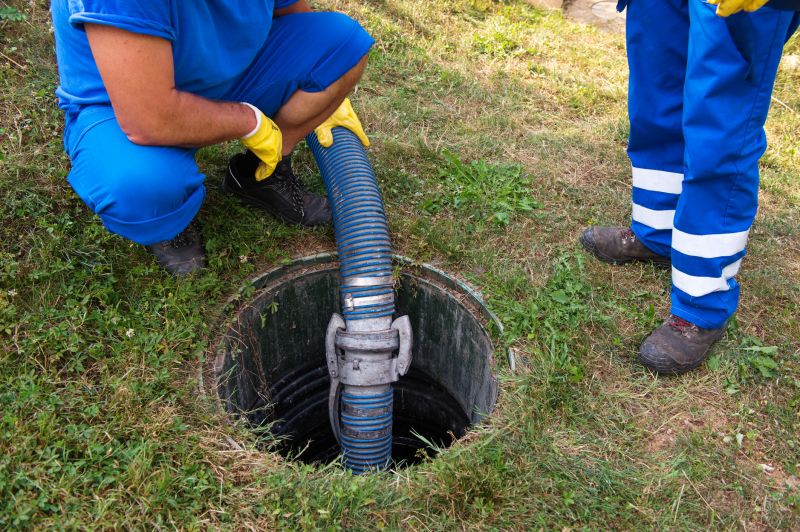
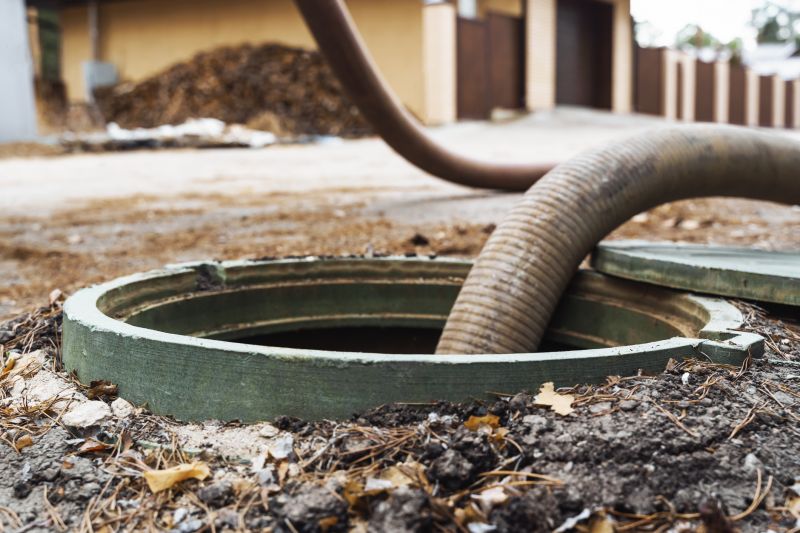
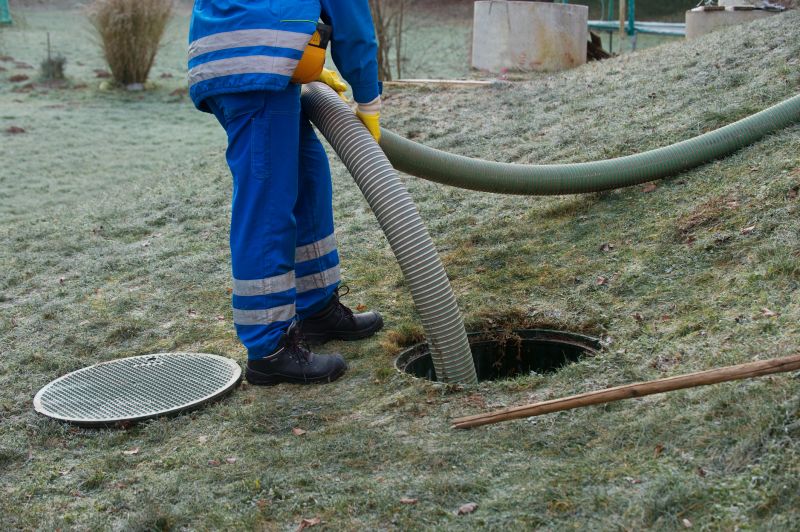
Septic inspection services involve a thorough assessment of a property's septic system to ensure it is functioning properly and safely. During an inspection, a professional contractor examines key components such as the tank, drain field, and pipes to identify any signs of wear, damage, or failure. This process may include checking for leaks, measuring tank levels, and evaluating the overall condition of the system. Regular inspections help homeowners stay ahead of potential issues, preventing costly repairs and ensuring the system operates efficiently.
These services are essential for addressing common septic system problems before they become serious. For example, a failing drain field can cause sewage backups or unpleasant odors, while a damaged tank might lead to leaks that contaminate the surrounding soil. Septic inspections help detect early signs of these issues, allowing for timely repairs or maintenance. This proactive approach can extend the lifespan of the system, reduce the risk of environmental contamination, and avoid emergency service calls.
Septic inspection services are often used in a variety of property types, including single-family homes, rural residences, and properties with older septic systems. They are particularly important when purchasing a new property, as an inspection can reveal hidden problems that might influence the buying decision. Additionally, properties that haven't been inspected in several years or show signs of drainage issues benefit from a professional evaluation. Regular inspections are also recommended for homeowners who want to maintain their system’s longevity and prevent unexpected failures.
Homeowners in Denver County and nearby areas who rely on septic systems should consider scheduling an inspection if they notice symptoms like slow drains, gurgling sounds, or sewage odors. These signs can indicate underlying problems that need attention. Engaging experienced local contractors ensures a comprehensive evaluation, helping to identify issues early and plan necessary repairs or maintenance. By choosing the right service provider, homeowners can keep their septic systems operating smoothly and avoid disruptions to daily life.
The overview below groups typical Septic Inspection projects into broad ranges so you can see how smaller, mid-sized, and larger jobs often compare in Denver County, CO.
In many markets, a large share of routine jobs stays in the lower and middle ranges, while only a smaller percentage of projects moves into the highest bands when the work is more complex or site conditions are harder than average.
Smaller Repairs - typical costs for routine septic inspections generally range from $250 to $600. Many standard inspections fall within this middle range, covering basic system checks and minor repairs. Fewer projects will push into the higher end of this spectrum.
Comprehensive Inspections - more detailed evaluations, including additional testing or advanced diagnostics, usually cost between $600 and $1,200. These are common for homes with older systems or recent issues needing thorough assessment.
Full System Replacement - replacing a septic system can range from $3,500 to over $7,000, depending on site conditions and system size. Larger, more complex projects tend to reach the higher end of this range, while simpler replacements are closer to the lower end.
Extended or Complex Projects - larger, more involved septic work, such as extensive repairs or upgrades, can exceed $10,000 in some cases. Such projects are less frequent and typically involve specialized systems or challenging site conditions.
Actual totals will depend on details like access to the work area, the scope of the project, and the materials selected, so use these as general starting points rather than exact figures.
Drain Field Inspection - professionals assess the condition of drain fields to ensure proper function, similar to septic system evaluations.
Septic System Pumping - service providers perform pumping and cleaning of septic tanks, requiring knowledge of system components and planning.
Septic Tank Replacement - contractors handle the installation of new septic tanks, involving site assessment and planning skills akin to inspections.
Soil Testing and Percolation Tests - experts evaluate soil absorption capacity, which complements septic system assessments and planning.
Drain Field Repair - specialists repair or replace damaged drain fields, requiring diagnostic skills similar to septic inspections.
Septic System Maintenance - routine upkeep services include inspections and minor repairs, utilizing similar tools and planning as septic evaluations.
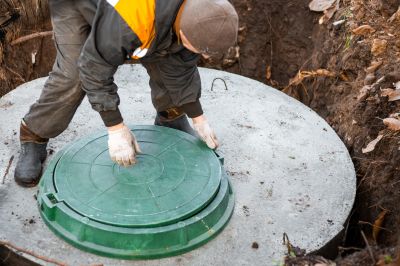
When selecting a septic inspection service, it’s important to consider the experience of local contractors with similar projects. Homeowners should look for service providers who have a proven track record in performing thorough inspections of septic systems in residential settings comparable to their own. This can help ensure that the contractor understands the specific requirements and common issues associated with septic systems in Denver County and nearby areas. A contractor’s familiarity with local soil conditions, regulations, and system types can contribute to a more accurate assessment and a smoother inspection process.
Clear, written expectations are essential when comparing septic inspection services. Homeowners should seek providers who can offer detailed descriptions of what the inspection will include, what aspects will be evaluated, and what the homeowner can expect to receive in terms of findings and recommendations. Having these expectations clearly documented helps prevent misunderstandings and ensures that both parties are aligned on the scope of work. It’s also beneficial to request information about the process upfront, so homeowners can assess whether the service provider’s approach matches their specific needs.
Reputable references and effective communication are key factors in choosing a reliable septic inspection service. Homeowners are encouraged to ask potential service providers for references from previous clients, especially those who had similar inspections or projects. Contacting these references can provide insights into the contractor’s professionalism, thoroughness, and ability to communicate clearly throughout the process. Good communication involves responsiveness, clarity in explanations, and a willingness to answer questions, which can make the entire experience more straightforward and less stressful. It’s important to remember that the site connects homeowners with local service providers capable of handling the work, but the actual inspection will be performed by the selected contractor.
Property owners in Denver County, CO use Septic Inspection services for practical projects around their homes and businesses. This guide focuses on everyday jobs and straightforward project options.
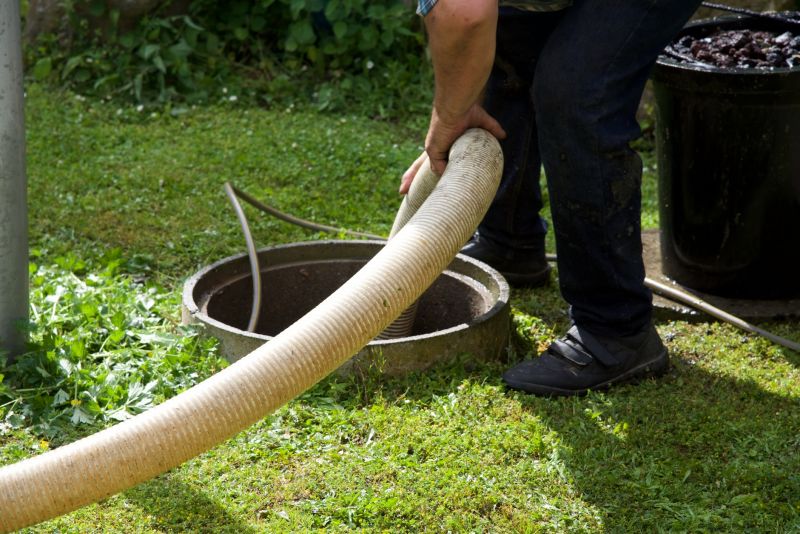
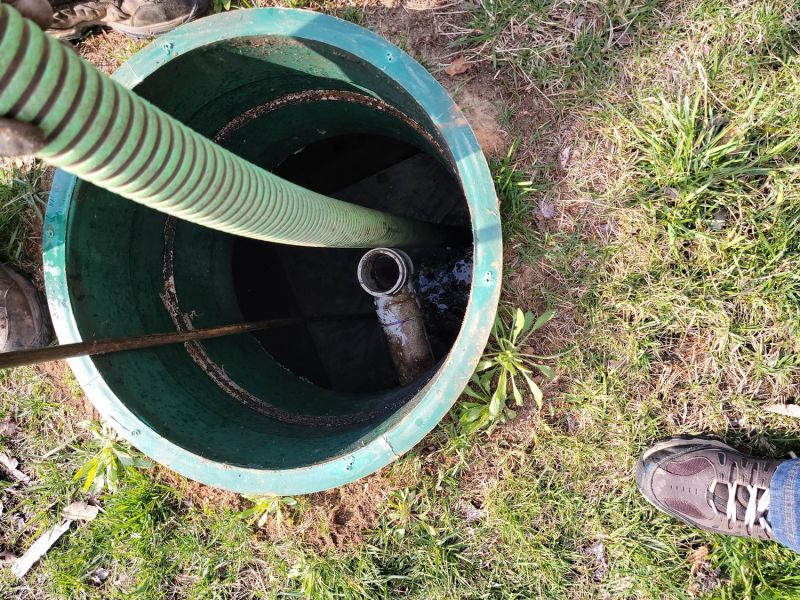
Septic inspection services are often needed when property owners in Denver County, CO are preparing to sell their homes, ensuring the septic system is functioning properly for potential buyers. Homeowners may also seek inspections after experiencing slow drains, foul odors, or sewage backups, which can indicate issues that need professional assessment. Additionally, routine inspections are common for those who want to maintain the health of their septic systems and prevent costly repairs down the line, especially in areas where septic systems are a standard part of property infrastructure.
Local contractors can assist property owners in Denver County with inspections during real estate transactions, or as part of regular maintenance. They can identify potential problems early, helping to avoid unexpected failures and ensuring compliance with local regulations. Whether for a new installation, ongoing upkeep, or troubleshooting existing systems, these service providers offer the expertise needed to keep septic systems operating smoothly and to address any concerns that arise in everyday property management.
What is a septic inspection? A septic inspection involves evaluating the condition of a septic system to ensure it functions properly and meets health standards.
Why should I have my septic system inspected? Regular inspections help identify potential issues early, preventing costly repairs and ensuring the system operates efficiently.
Who can perform a septic inspection? Qualified local service providers or contractors specializing in septic systems can conduct inspections to assess system performance and identify problems.
What does a septic inspection typically include? The process usually involves checking the tank, assessing the drain field, and evaluating the overall system for signs of failure or blockages.
How can I find local contractors for septic inspections? This website helps connect homeowners with nearby service providers who specialize in septic system inspections and related services.
Septic System Inspection - Property owners can schedule inspections to ensure their septic systems are functioning properly before purchasing or selling a home.
Septic System Maintenance - Regular inspections can help identify potential issues early, preventing costly repairs and extending the life of the system.
Septic System Troubleshooting - When experiencing slow drains or unpleasant odors, property owners can have local contractors diagnose and address septic system problems.
Septic System Upgrades - Homeowners planning renovations or additions can consult with service providers to update or improve their existing septic systems for better performance.

If you are thinking about Septic Inspection for a property in Denver County, CO, this guide is meant to help you understand the work, the typical project types, and how different options might fit your plans.
When you are ready, you can use the quote form on this page to share a few details about your project. From there, local pros can review the basics and respond with options that match what you have in mind.



